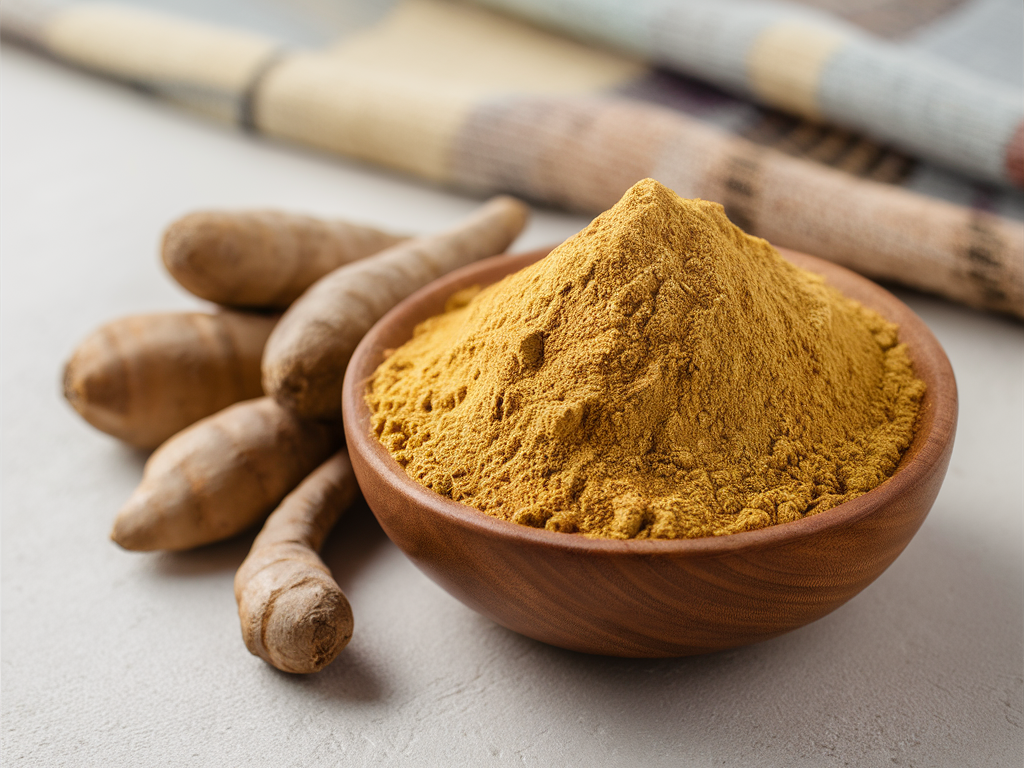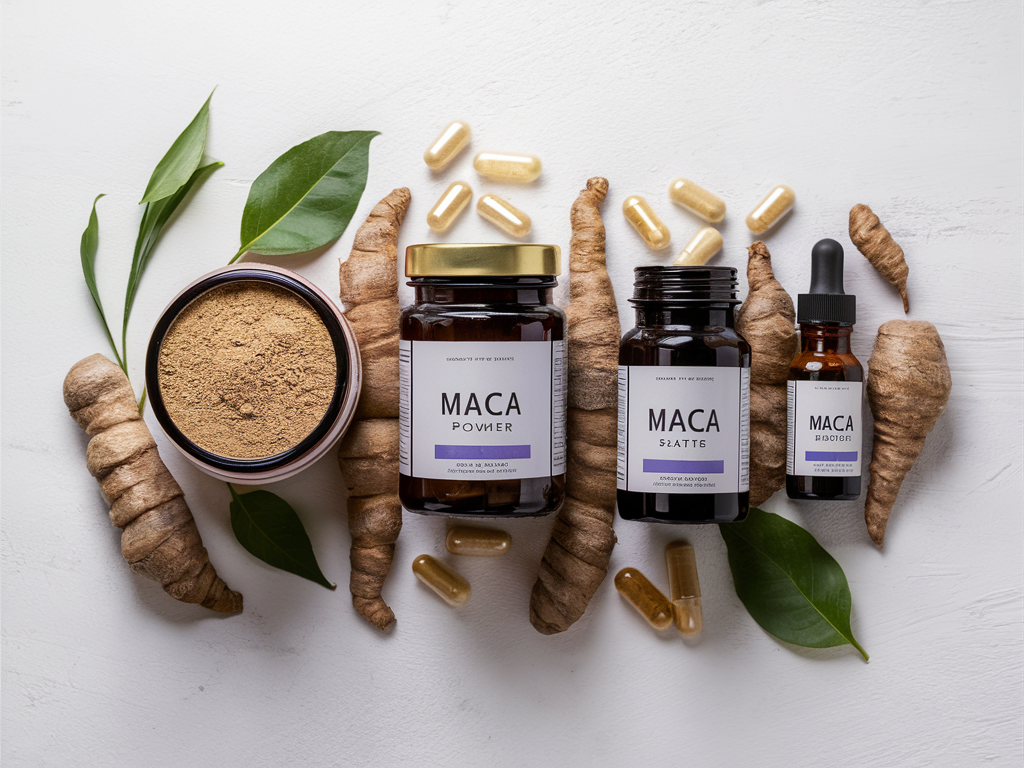Native to the high Andean mountains of Peru, maca root has been treasured for centuries as both a nutritional powerhouse and medicinal herb. This remarkable adaptogen, scientifically known as Lepidium meyenii, grows in one of the world’s harshest agricultural environments at elevations exceeding 13,000 feet, where intense sunlight, extreme temperature fluctuations, and fierce winds have contributed to its extraordinary resilience and nutrient density.
For over 2,000 years, indigenous Peruvians have incorporated maca into their diets and healing practices, valuing it not only for sustenance but also for its ability to enhance fertility, increase stamina, and combat fatigue. Incan warriors reportedly consumed maca before battle to boost strength and endurance, while traditional healers prescribed it for everything from reproductive health issues to mood imbalances.
In recent decades, this ancient superfood has captured global attention as modern research begins to validate many of its traditional uses. Today, maca has earned its place among premium adaptogens in wellness circles worldwide, appearing in everything from smoothie bowls to supplement regimens.
This comprehensive guide explores the evidence-based benefits of maca root, examining both its impressive potential and important considerations before incorporating it into your wellness routine.
The Science Behind Maca
Maca’s remarkable properties stem from its exceptional nutritional profile and unique bioactive compounds. This Andean superfood contains an impressive array of essential nutrients, including significant amounts of protein (with all essential amino acids), fiber, vitamins B1, B2, C, and E, calcium, zinc, iron, magnesium, phosphorous, and potassium.

What truly distinguishes maca are its bioactive compounds—primarily glucosinolates, macamides, macaenes, alkaloids, and sterols. These compounds interact with multiple bodily systems, particularly the endocrine network, affecting hormone production and regulation without containing hormones themselves. This mechanism allows maca to function as an adaptogen, helping the body respond more effectively to various stressors while promoting balance and homeostasis.
Research suggests maca works through several pathways:
- Hypothalamic-pituitary axis modulation, influencing hormone production
- Antioxidant activity, neutralizing free radicals and reducing oxidative stress
- Anti-inflammatory effects, supporting overall cellular health
- Neuroprotective properties, supporting brain function and mood regulation
Consumers can choose from various maca preparations, each with particular benefits:
- Powder: The most common form, versatile for adding to foods and beverages
- Capsules: Convenient for precise dosing without taste considerations
- Liquid extracts/tinctures: Offer rapid absorption and higher concentration of active compounds
- Gelatinized powder: Pre-cooked for improved digestibility and concentrated nutrients
Maca is also available in different colors—yellow, red, and black—each associated with slightly different properties and traditional uses.
7 Evidence-Based Benefits of Maca Root
Benefit #1: Increases Energy and Stamina
Unlike stimulants that temporarily boost energy through nervous system activation, maca enhances vitality through more sustainable pathways. Research published in the Journal of Ethnopharmacology indicates that maca improves energy metabolism at the cellular level, optimizing the body’s ability to produce and utilize ATP—the primary energy currency of cells.
A 2009 study published in the Journal of Sexual Medicine found that cyclists who supplemented with maca extract for 14 days significantly improved their time trial performance compared to those taking a placebo. The researchers attributed this enhancement to improved energy utilization rather than immediate stimulation.
The mechanisms behind maca’s energy-enhancing properties include:
- Optimization of glucose metabolism
- Support for adrenal function, helping regulate cortisol and combat fatigue
- Improved oxygen utilization in muscle tissue
- Enhanced mitochondrial function
For athletes and active individuals, maca offers a stimulant-free alternative for sustainable energy support. Many users report improved workout recovery, greater endurance, and reduced perception of physical exertion when incorporating 3-5 grams of maca daily into their nutrition regimen.
Benefit #2: Balances Hormones
One of maca’s most celebrated attributes is its ability to support hormonal balance across different life stages and conditions. Unlike hormone replacement therapies, maca doesn’t add hormones to the body; instead, it helps optimize the body’s endocrine system function.
Studies focusing on women’s health have been particularly promising. A 2006 randomized, double-blind, placebo-controlled study published in the International Journal of Biomedical Science found that postmenopausal women taking maca experienced significant reductions in hormone-related symptoms, including hot flashes, night sweats, and sleep disruptions.
For women experiencing PMS, research suggests maca may help alleviate symptoms by modulating estrogen and progesterone fluctuations. A 2015 study in the Journal of Medicinal Food reported reduced severity of premenstrual symptoms in women taking maca supplements for three consecutive menstrual cycles.
Maca’s hormone-balancing effects extend to:
- Supporting healthy estrogen metabolism
- Optimizing thyroid function
- Improving hypothalamic-pituitary-adrenal (HPA) axis communication
- Regulating cortisol responses to stress
These benefits make maca particularly valuable during hormonal transitions like perimenopause, menopause, and times of hormonal fluctuation due to stress or environmental factors.
Benefit #3: Enhances Libido and Sexual Function
Perhaps maca’s most well-known application is its ability to enhance sexual desire and function across genders. This traditional use has been substantiated by multiple clinical studies.
A systematic review published in BMC Complementary and Alternative Medicine analyzed multiple randomized clinical trials and concluded that maca consistently improved sexual desire after 6 weeks of treatment. These effects were observed in both men and women, including those experiencing antidepressant-induced sexual dysfunction.
For men, maca appears to offer additional reproductive benefits. Research published in Asian Journal of Andrology found that maca supplementation increased semen volume, sperm count, and sperm motility in healthy men. Another study in Andrologia demonstrated improved sperm quality parameters in infertile men after 12 weeks of maca supplementation.
Women may experience specific benefits for fertility and sexual satisfaction. A 2015 study found that maca helped normalize luteinizing hormone, follicle-stimulating hormone, and estradiol levels in women with irregular cycles, potentially supporting improved fertility.
Unlike pharmaceutical interventions for sexual function, maca works holistically by:
- Improving energy and reducing fatigue that may impact sexual desire
- Supporting healthy testosterone levels in men without causing hormonal imbalance
- Enhancing blood flow to reproductive organs
- Reducing stress and anxiety that can interfere with sexual function
- Balancing mood and creating a sense of well-being that supports healthy sexuality
Benefit #4: Improves Mood and Reduces Anxiety
As an adaptogen, maca helps the body respond more effectively to stress, with notable effects on psychological well-being. Research published in Climacteric: The Journal of the International Menopause Society demonstrated that postmenopausal women taking maca experienced significant reductions in anxiety and depression symptoms compared to those taking placebo.

These mood-enhancing effects aren’t limited to women or specific age groups. A 2016 study in the Journal of Medicinal Food found that maca extract reduced depression symptoms and improved quality of life scores across diverse participant groups.
The mechanisms behind maca’s mental health benefits include:
- Adaptogenic support for the HPA axis, helping regulate cortisol release during stress
- Modulation of neurotransmitters including serotonin, dopamine
- Anti-inflammatory effects that may reduce neuroinflammation associated with mood disorders
- Improved energy metabolism in brain cells
Many users report a gentle, sustainable mood lift without the jitteriness or crashes associated with stimulants. This makes maca particularly valuable for those experiencing stress-related mood changes, seasonal affective disorder, or mild to moderate anxiety symptoms.
Benefit #5: Supports Cognitive Function
Emerging research suggests maca may offer significant neuroprotective and cognitive-enhancing properties. A 2016 study published in Evidence-Based Complementary and Alternative Medicine found that black maca improved learning and memory in animal models, with researchers identifying potential mechanisms including acetylcholinesterase inhibition (similar to certain medications used for cognitive decline) and antioxidant activity.
Human studies, while more limited, show promising results. Research in the Journal of Ethnopharmacology demonstrated that maca supplementation improved cognitive performance and subjective measures of mental clarity in healthy adults after 12 weeks.
The cognitive benefits of maca appear to be multifaceted:
- Protection against oxidative stress, which contributes to neurodegenerative processes
- Support for neural mitochondrial function, improving energy availability for brain cells
- Enhanced cerebral blood flow, delivering more oxygen and nutrients to neural tissue
- Modulation of neurotransmitter systems involved in learning and memory
These properties make maca potentially valuable for cognitive performance optimization, age-related cognitive maintenance, and as part of holistic approaches to brain health across the lifespan.
Benefit #6: Boosts Immune System
Maca’s immune-supporting properties stem from its remarkable nutrient density and bioactive compounds with specific immune-modulating effects. Research published in the Journal of Medicinal Food identified significant antioxidant activity in maca extract, with the ability to neutralize free radicals that can damage immune cells and impair function.
The glucosinolates in maca—similar to those found in cruciferous vegetables like broccoli—break down into isothiocyanates, compounds with documented immune-enhancing and anti-inflammatory properties. A 2016 study in International Immunopharmacology found that these compounds from maca increased natural killer cell activity, enhancing the immune system’s ability to identify and eliminate potentially harmful cells.
Maca supports immune function through multiple pathways:
- Providing essential micronutrients critical for immune cell production and function
- Reducing chronic inflammation that can overtax immune resources
- Supporting gut health, where approximately 70% of immune tissue resides
- Modulating stress response, preventing stress-induced immunosuppression
Regular maca consumption may be particularly beneficial during seasonal immune challenges, periods of increased stress, or for those looking to support resilient immune function as part of a prevention-focused health approach.
Benefit #7: Supports Bone Health
Maca offers promising potential for maintaining and enhancing bone density, particularly relevant for aging populations and those at risk for osteoporosis. Its bone-supporting properties stem from both its mineral content and unique bioactive compounds.
Research published in Menopause: The Journal of The North American Menopause Society demonstrated that postmenopausal women taking maca showed improved bone mineral density markers compared to control groups. A separate animal study in the Journal of Ethnopharmacology found that red maca specifically prevented bone loss in ovariectomized rats (a model for postmenopausal bone changes).
Maca supports bone health through several complementary mechanisms:
- Providing calcium, magnesium, silica, and other minerals essential for bone matrix formation
- Containing alkaloids that may stimulate osteoblast activity (cells that build new bone)
- Supporting hormone balance, particularly in menopause when declining estrogen contributes to bone loss
- Reducing inflammation and oxidative stress that can accelerate bone demineralization
When combined with vitamin D, weight-bearing exercise, and other bone-supporting nutrients like vitamin K2, maca may contribute significantly to comprehensive bone health strategies, especially for those at increased risk for compromised bone integrity.
Potential Side Effects and Considerations
While maca has an excellent safety profile and is generally well-tolerated, awareness of potential side effects and contraindications is essential for informed use.
Common side effects, though relatively rare, may include:
- Digestive discomfort: Some users report mild stomach upset, gas, or bloating when first introducing maca, particularly with raw powder. Starting with small doses and gradually increasing, or opting for gelatinized maca (which has been pre-cooked to remove starch content), can minimize these effects.
- Altered menstrual cycles: Due to its hormone-modulating effects, some women notice changes in their menstrual patterns when beginning maca supplementation.
- Insomnia or overstimulation: Though not a stimulant, maca’s energy-enhancing properties may affect sleep if taken late in the day.
- Acne or skin changes: Hormone-sensitive individuals might experience temporary skin changes as their body adjusts to maca’s effects.
Medication interactions warrant special attention. Individuals taking the following should consult healthcare providers before using maca:
- Hormone replacement therapy or hormonal contraceptives
- Medications for hypertension (maca may affect blood pressure)
- Thyroid medications (maca contains goitrogens that may influence thyroid function)
- Blood-thinning medications (due to potential vitamin K content)

Certain populations should exercise particular caution:
Pregnant and breastfeeding women: While maca has been traditionally consumed during pregnancy in Peru, insufficient research exists on its safety during these periods. Most experts recommend avoiding maca during pregnancy and lactation or using only under qualified healthcare supervision.
People with hormone-sensitive conditions: Those with conditions like breast cancer, uterine cancer, endometriosis, or uterine fibroids should consult healthcare providers before using maca, as its hormone-modulating effects could potentially influence these conditions.
Individuals with thyroid disorders: Maca contains goitrogens, compounds that may affect thyroid function. While the amounts are generally considered minimal, those with existing thyroid conditions should monitor their response carefully and work with healthcare providers.
How to Incorporate Maca into Your Wellness Routine
To maximize maca’s benefits while minimizing potential side effects, consider these evidence-informed guidelines for incorporation into your wellness regimen.
Recommended dosages based on research:
- General wellness and energy: 1.5-3 grams daily
- Hormone balance: 2-3.5 grams daily
- Sexual function: 2.4-3.5 grams daily
- Athletic performance: 3-5 grams daily
Start with a lower dose (approximately 1 gram daily) for the first week, then gradually increase to your target amount. This minimizes digestive adjustment and allows you to monitor your body’s response.
Maca can be incorporated into your diet in various enjoyable ways:
- Smoothies: Blend 1-2 teaspoons of maca powder with fruits, leafy greens, and your preferred liquid base
- Oatmeal or breakfast bowls: Stir maca powder into morning porridge with cinnamon and natural sweeteners
- Energy balls or homemade bars: Combine maca with nuts, seeds, dates, and other superfoods
- Hot beverages: Add to coffee alternatives, hot chocolate, or tea with plant-based milk
- Baked goods: Incorporate into pancakes, muffins, or energy bars
When selecting maca supplements, quality considerations include:
- Origin verification: Authentic Peruvian maca from high-altitude regions typically offers superior active compound profiles
- Processing method: Low-temperature processing preserves heat-sensitive compounds
- Color specification: Different colors (yellow, red, black) have slightly different properties
- Organic certification: Ensures freedom from pesticides and other contaminants
- Third-party testing: Verifies purity and potency claims
For enhanced effects, consider these synergistic supplements:
- Ashwagandha: Complements maca’s adaptogenic properties, particularly for stress reduction
- Rhodiola: Enhances energy and performance benefits
- Vitamin D3 and K2: Amplifies bone health benefits
- B-complex vitamins: Supports energy metabolism enhancements
Conclusion
Maca root emerges as a remarkably versatile adaptogen with significant evidence supporting its traditional uses. The research validates its benefits for energy enhancement, hormone balance, sexual function, mood improvement, cognitive support, immune function, and bone health—making it one of the most comprehensively beneficial superfoods available.
However, like any powerful natural supplement, maca is not a one-size-fits-all solution. Individual responses vary based on biochemical uniqueness, existing health conditions, and specific wellness goals. The most impressive results typically emerge when maca is incorporated into a holistic approach that includes balanced nutrition, regular physical activity, stress management, and adequate sleep.
For those interested in exploring maca’s potential, a measured approach is recommended: start with small doses, monitor your body’s response, and consider consulting healthcare providers, particularly if you have existing health conditions or take medications. When selected with care and used appropriately, maca offers a remarkable opportunity to connect with an ancient medicinal tradition while supporting modern wellness goals with evidence-based confidence.

